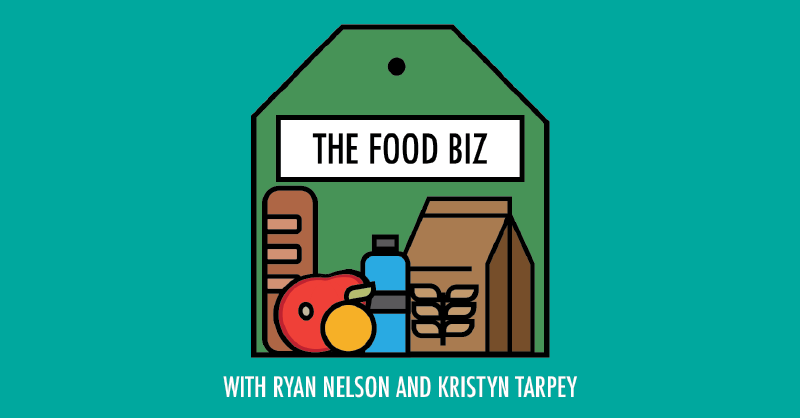Commodity Blog
Oct 14 2021
The Food Biz Episode 12 Recap: Land, Water, and Air Transport With Mike Baudendistel

On this week’s episode of The Food Biz, hosts Kristyn Tarpey and Ryan Nelson are joined by Mike Baudendistel, Analyst and Market Expert at FreightWaves, the industry leader in freight news and data. Mike began the episode by telling us a little more about his role at FreightWaves and how he got where he is today. He mentions that FreightWaves has grown at a rapid pace, especially since supply chain issues have been a huge topic the past year and a half.
Having mentioned supply chain issues, Kristyn asks Mike what the biggest impacts have been over the span of Covid. Mike states that he thinks the biggest impact this year has been on the ocean. It’s been a challenge getting containers into the U.S. There are a number of different reasons for this, a few being the volume of imports, ports being shut down due to Covid, congestion in the U.S. ports, high shipping rates, etc. Mike mentioned that it’s been such a struggle that mega-retailers such as Walmart, Home Depot, and Costco are chartering their own vessels, which you don’t see very often.
Kristyn followed up that conversation by asking Mike if he thinks these solutions, like companies chartering their own vessels, are temporary or if these tactics will remain. Mike thinks that retailers chartering vessels is definitely temporary, these were desperate times; they needed to secure the capacity, and it makes their supply chains more challenging - so they wouldn’t want to choose that option going forward.
Ryan then asks, outside of vessels, is air transportation viable, or would that throw off sustainability goals? Mike explains that the largest issue with air cargo is that it’s a big expense. It costs around 10 times as much to ship via cargo plane as it does to use the ocean. He said that goods that tend to ship by air are smaller, high valued items like cell phones, laptops, etc. but with bigger, bulkier items, it’s not economically viable to send them over the air.
Mike also pointed out that there are exceptions to this. For example, Peloton used air freight so they could deliver bikes faster in order to secure the recurring revenue of monthly subscriptions once the consumer receives their bike.
The three then switch gears to discuss the recent railway activity. Mike said that at the beginning of the pandemic, they scaled down their staff and now the volume is back to normal, they’re trying to hire more people, and haven’t been able to keep up. Another issue has been the shortage of chassis, the frame that you place a container on. There is a shortage of these because the U.S. manufacturers were fighting an anti-dumping case against the Chinese. The U.S. won, but it takes time to ramp production back up.
Ryan then asks, what does this mean for the food industry? Mike explains that the food industry might have to use more trucks instead of intermodal, which is more expensive. They have been moving goods via railway also, but in some cases, they can’t make it to the usual port because of congestion, so trucks will have to haul at least some of the way. He also stated that it has been a factor mainly for non-perishable items.
Kristyn posed another question for Mike, do all of these issues boil down to labor shortages? Mike responds that labor shortages are certainly not the only constraint, another; large issue besides labor shortage has been Covid outbreaks near ports. However, labor shortages have mainly impacted the trucking industry, including short-haul trucking, which is rare. Normally, hauls with mileage around 50 miles have an excess of availability, but not right now.
This episode covered a lot of ground, so make sure to listen to the entire episode on Spotify or in the Apple Podcasts App! While you’re there, don’t forget to subscribe. Also, feel free to reach out to us by email at news@barchart.com with any discussion topics, questions, comments, or overall feedback; Ryan and Kristyn would love to hear from you!
Barchart Updates
